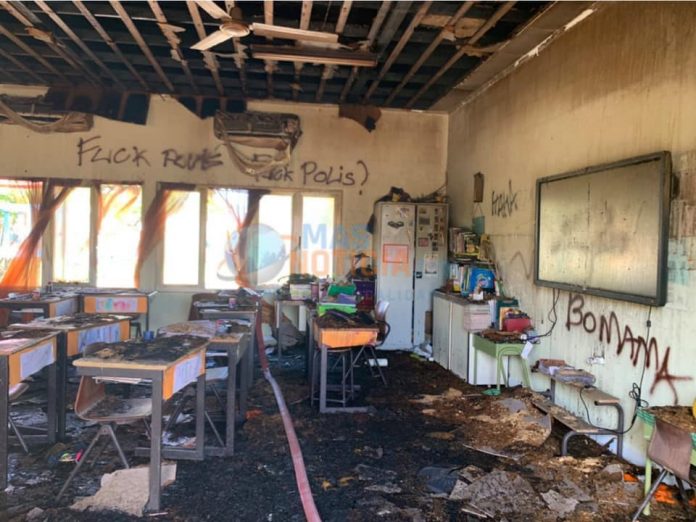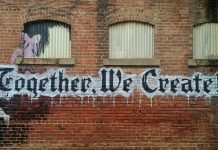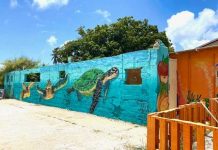When I think about education, I can’t help but reflect on my childhood. Bearing all the excitement on the first school day and the anticipation of finding out who my teacher was going to be. Walking into the beautifully decorated classroom filled with quotes like; “Education is the passport for the future” or “Better to have tried and failed than to have never tried at all” seem like the perfect setting for success. However, now that we are in the 21st century, how much have we evolved? Are we teaching our students the right skills? Are we providing good quality education? Is the Aruban education system inclusive for all students?
From the title of today’s column, we can pinpoint that “The Goal of the Month” for January is Sustainable Development Goal (SDG) 4 which represents good quality education. This month the entire island was disappointed to learn that an elementary school was vandalized, resulting in major loss for the school due to a fire outburst. Interestingly, it was exactly the school that was chosen by the Aruban Government as an innovative pilot school. This school received brand new digital boards to increase the level of education within the classroom. However, merely at the beginning of 2020, it seems as if the Aruban education system is under attack.
Data shows that Aruba like many other island states have made tremendous advancements towards proving good education, but is still struggling to catch up with global demands and trends. Why do you think this is the case? It was not too long ago that teachers united to demand the government to pay more attention to basic needs such as air conditioning, infrastructure, school materials, school security, and safety. Besides all these obstacles, education remains a public good and is a vital component for sustainable human and economic development of a country.
Aruban Education and the SDGs.
Since the emergence of the Sustainable Development Goals in 2015, a baseline measurement of all the 17 goals was conducted in 2018 by the Aruba SDG indicator working group together with the support from United Nations Economic Commission for Latin America and the Caribbean (ECLAC). Specifically, with regards to education, the report summarizes that Aruba scores well above average on indicators such as; student participation, female attendance, access to drinking water and electricity, literacy rate, access to teachers and so on. However, when it comes to indicators conditional on innovation and digitalization, Aruba still has room to learn and grow. The “Plan Educacional National” (PEN) rapport highlights the importance of aligning the already behind education system to the “Future of Work” mindset. With the loss of certain jobs and skills, newer and improved ones emerge and that is where we should work on. According to the PEN (2019) “skills that are considered important are creativity and imagination, technological knowledge, 21st century skills, coding, entrepreneurial mindset and persistence”. The SDGs are well represented by these ideals, considering the impact of education on inclusive innovation, creativity, technological change, and socio-economic development.
Education and Employment.
In April 2019, The Minister of Finance, Economy & Culture presented the Economic Policy for 2019-2021. In this report the Minister introduced the six economic pillars for the purpose of diversifying Aruba’s economy. These six pillars consist out of the: tourism industry; knowledge economy; agriculture; logistics; circular economy; and creative industries. In the words by Laozi “give a man a fish and he will eat for a day. Teach a man to fish and he will eat for a lifetime”. The essence in this saying is that education is necessary for sustainability to occur. Especially when we are talking about developing new economies, providing education in these 6 sectors will help build the human capital needed to do so. Plato even expressed that “if a man neglects education, he walks lame to the end of his life”, indicating that if governments and organizations deny the power of education they are limiting themselves beyond years. In the age of globalization, Aruba cannot fall in this trap. Using India as a case study example, Kobzev Kotaskova et. al (2018) explain that an “increase of employment and focus on structuralizing of the economy are key tools how to increase the level and quality of education. Encouraging and expanding opportunity for career training are crucial too”.
Moving Forward.
Since the adoption of the 2030 Agenda, the role and contribution of culture to sustainable development has been more elaborative in national and local cultural policies, especially considering culture’s contribution to economic development, social inclusion and education. Effective evidence-based policy making and strategic planning remain important aspects for the island. Both top-down and bottom-up the dialogue needs to create opportunity for more communication and collaboration. Decisions we make today in the education system will have long lasting effects for the future. Aruba cannot afford another decade or two to catch up. The right priorities and the initiative needs to be aligned in order to solidify the foundation we are working on. Inter-ministry, inter-organizational, inter-departmental dynamics should be addressed and encouraged. The SDGs as simple as they may seem are nos fragmented but are designed to work effectively in cluster networks. It resembles the policy process which includes all relevant actors and stakeholders. Having nicely written reports does not cover the issues at stake, but good implementation and monitoring plans should be taken seriously. Even though education is the most important tool, it has the longest or least eye catching “return on investment”, thus making it the least popular choice for politicians.
Overall, our focus should not be on merely making vision boards for the future but by strategically solving our educational issues. The next generations will need it more than we can imagine. As an island state, Aruba must start prioritizing the unpopular yet necessary elements to secure sustainable socio-economic development. The first steps have already been made, but it will now require some commitment and following through. Aruba has shown her support after the terrible fire at Cacique Macuarima Elementary School through many donations and aid. Aruba’s education system might be under attack, but now it is our turn to fight back!















